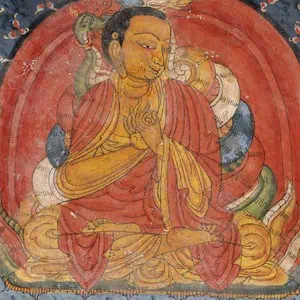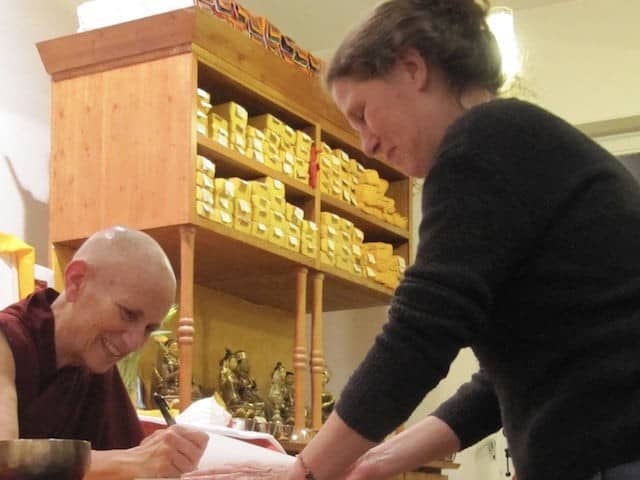Quiz questions Part 4 for Precious Garland

Quiz questions covering Nagarjuna’s Precious Garland of Advice for a King</cite<.
Quiz 4
Tip: some questions can be answered from different perspectives, so make sure to answer them from as many perspectives as possible.
- Why is our virtuous karma polluted karma? Does it lead to liberation?
- Describe the selflessness of persons and selflessness of phenomena in each of the four tenet systems.
- What are some of the different meaningss of conceptualization or conceptuality? Are all concepts to be eliminated?
- Do things exist merely by conceptual designation? What does “merely” mean in this case? Does everything that is conceptually designated exist?
- Explain the simile of the rope-snake. Does it make sense to you?
- What are the three criteria by which we can tell if something exists or not? Give examples of things that fulfill and do not fulfill each of the three criteria?
- Since we can’t know an inherently existent person with a reliable cognizer, how can we tell if we have correctly identified the object of negation or not?
- Why do you think Nagarjuna emphasized that the person is not the body—the five elements—when the lower tenet systems grasp the mind or one type of mind as the person?
- What does it mean to say there are two selves, one that exists and the other that doesn’t?
- Explain why 1) the aggregates are not the self, 2) they do they exist in the [self], 3) the self is not in the aggregates, 4) the self cannot exist without the aggregates, 5) the self and aggregates are not mixed like fire and fuel.
- Explain why 1) the person doesn’t inherently possess the aggregates, 2) the person is not the collection of the aggregates, and 3) the person is not the arrangement of the aggregates.
- How does Nagarjuna refute inherently existent phenomena? Update the refutation using the periodic table rather than the four elements.
- Describe the refutation of inherently existent phenomena using the four elements as Nagarjuna does.
- Do the aggregates exist inherently? If they don’t, how can they be the basis of designation for the self? If they do, how can they be the basis of designation for the self?
- Why don’t permanent phenomena exist inherently?
- What does “not seeing is the best seeing” mean?
- Does realizing emptiness destroy conventionalities? Why don’t conventional truths appear to an arya’s wisdom realizing emptiness?
- Does realizing emptiness make things that were once inherently existent now empty of inherent existence?
- Emptiness is the ultimate truth. Does it exist inherently?
- How do higher rebirth and the highest good relate to each other?
Venerable Thubten Chodron
Venerable Chodron emphasizes the practical application of Buddha’s teachings in our daily lives and is especially skilled at explaining them in ways easily understood and practiced by Westerners. She is well known for her warm, humorous, and lucid teachings. She was ordained as a Buddhist nun in 1977 by Kyabje Ling Rinpoche in Dharamsala, India, and in 1986 she received bhikshuni (full) ordination in Taiwan. Read her full bio.


